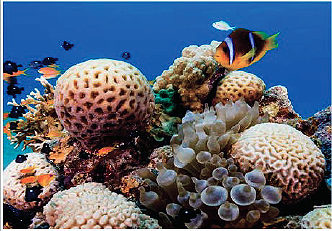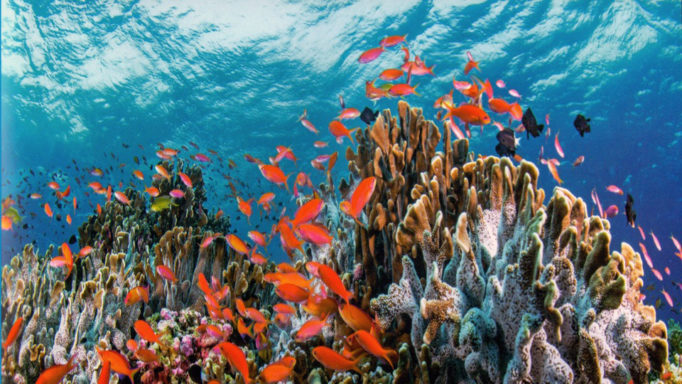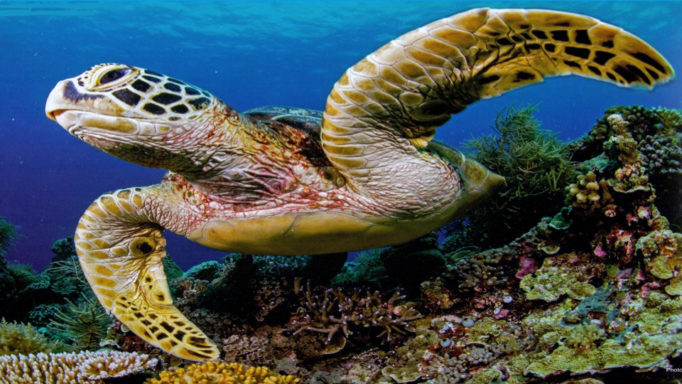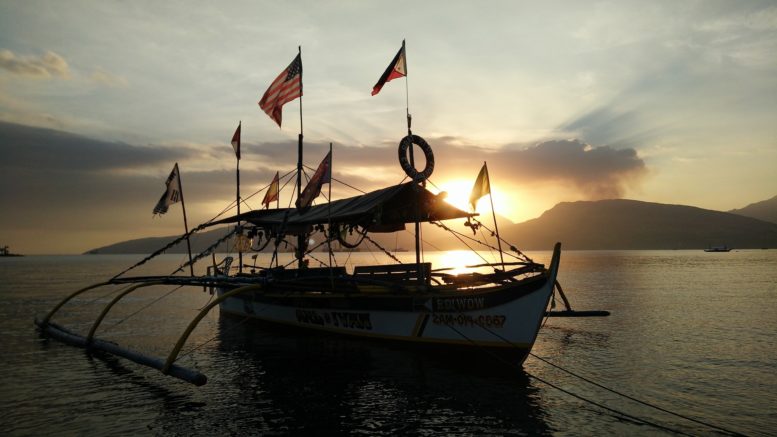Introduction
The maritime issues under consideration in this article relates to the establishment of a legal order and durable regional ocean governance mechanism addressing non-traditional maritime security concerns, initially concentrated on the South China Sea giving prominence to a narrowed ASEAN-China context, but eventually extrapolated to a large maritime setting that is the seas of the ASEAN and the Central Indo-Pacific. The overarching concern is in regard to a search for a legal framework and governance system to underpin a durable regional ocean governance cooperation impacting on the management of the marine environment and resources, taking into account the South China Sea disputes situation. The proposition being advanced herein is for the prompt implementation of UNCLOS Part IX to establish a legal order for cooperative ocean governance and institution-building for the South China Sea but impacting on the larger Central Indo-Pacific addressing non-traditional maritime security concerns, as aforestated.
At this moment in contemporary history, the 1982 United Nations Convention on Law of the Sea (UNCLOS) is generally accepted as the Constitution for the Oceans that could provide the durable legal order and governance mechanism for regional maritime security. In the conflict situation of the South China Sea, however, the UNCLOS provisions being invoked by the Philippines that impacts on maritime territorial sovereignty and sovereign rights might not be the appropriate recourse considering the nature of the disputes situation. Beyond the quarrel in regard to the characteristics of the marine geological features in the South China Sea, there is also the matter of the varying legal and/or historical bases for the respective sovereignty claims that are attached with sovereign rights entitlements under the UNCLOS. Indeed, The Hague PCA arbitration ruling of 12 July 2016, a year ago to date, has not contributed in any manner or form to the peaceful resolution of the disputes. An alternative approach under an UNCLOS legal framework might need to be considered.
Nature of the disputes situation
All sovereignty claims involving marine geological features in the South China Sea have pre-UNCLOS origins, and now complicated with added sovereign rights entitlements under the UNCLOS that renders the overall disputes situation incapable of a resolution solely pursuant to the UNCLOS. Parenthetically, the South China Sea disputes situation would seem to fall squarely under The Hague PCA Rules of Procedure at Section IV thereof, entitled “The Award”. In Article 27 (2) thereat in regard to “The Award Settlement or Other Grounds for Termination”, it is so provided that “If, before an award is made, the continuation of the arbitral proceedings becomes unnecessary or impossible for any reason x x x the Arbitral Tribunal shall inform the Parties of its intention to issue an order for the termination of the proceedings.” From early indications, the disputes are seemingly only capable of being managed or resolved through a political solution, whether interim or permanent.

A possible way forward
An alternative UNCLOS-based formula must be explored for a durable legal order and institutionalized governance system to address the ocean governance aspect of non-traditional maritime security concerns in the South China Sea, that also necessarily projects to the immediately surrounding regional sea areas, to guarantee maritime peace, good order and safety/security. Necessarily, this direction would entail “a bifurcation” of the contentious issues following the approach of The Hague PCA i.e., “shelving” of sovereignty issues and addressing sovereign rights, and thereafter resorting to and jointly constructing among parties directly concerned a norm-based regional ocean governance cooperation system. A norm-based cooperative regional ocean governance system that can be instituted under the UNCLOS for the seas of the ASEAN and Central Indo-Pacific is necessary and indispensable for connectivity in a linked-together enclosed/semi-enclosed seas and archipelagic waters.
The broad legal and scientific framework for a compelled cooperation among States bordering enclosed/semi-enclosed seas is already established under the UNCLOS Part IX thereof. And most of the participating States of the ASEAN and the Central Indo-Pacific are Parties to the UNCLOS and thereby bound to cooperate together in ocean governance. There is therefore no further need for the participating States concerned to go through the laborious process of organization inasmuch as the cooperation framework and mechanism in its legal and scientific aspects is already established under UNCLOS Part IX and merely needs implementation. An UNCLOS-imbedded ocean cooperation scenario and perspective for regional States bordering the seas of ASEAN and the Indo-Pacific interconnected enclosed/semi-enclosed seas would include the following: Brunei, Cambodia, Indonesia, Laos, Malaysia, Myanmar, Philippines, Vietnam, Singapore, Thailand, Bangladesh, China, India, Papua-New Guinea, Timor-Leste and Sri Lanka.
Additionally, UNCLOS Article 123 provides that Member States may “invite, as appropriate, other interested States or international organizations to cooperate with them in the furtherance of the provisions of this article”. The foregoing proviso in UNCLOS Article 123 allows for another layer of stakeholder participation short of membership, or so-called open-regionalism. In the context of the Central Indo-Pacific seas, the major extra-regional interested States that would be appropriate to invite, as examples and among others the principal members may choose, would be Australia, EU, Japan, Republic of Korea, New Zealand, Russia and the United States of America. Relevant international organizations that may be invited to join under UNCLOS Article 123 in any appropriate category (e.g., observers, etc.) would be the IMO, FAO, and IHO, among others that the principal State parties would deem to invite. Additionally, duly accredited non-governmental organizations (NGO’s) can possibly join upon invitation or application. This proviso guarantees inclusivity in stakeholder participation in the joint and cooperative governance of enclosed and semi-enclosed seas.
Regional seas coverage
An enclosed/semi-enclosed sea is defined in UNCLOS Part IX in Article 123 as “a gulf, basin or sea surrounded by two or more States and connected to another sea or the ocean by a narrow outlet or consisting entirely or primarily of the territorial seas or exclusive economic zones of two or more coastal States”. The regional seas coverage for Central Indo-Pacific would therefore encompass the South China Sea, the Gulf of Thailand, the Straits of Malacca and Singapore, the archipelagic waters of Indonesia, Papua-New Guinea, Philippines, the southern Indian Ocean, the Andaman Sea and the Bay of Bengal (among others that can be identified later). These are interconnected enclosed and semi-enclosed seas subsuming interconnected archipelagic waters within. A holistic ocean governance mechanism for the aforementioned seas is essential and indispensable for ASEAN integration and connectivity for AEC 2015, and initiated under ASEAN Vision 2025. The collective regional core interest of the ASEAN Central Indo-Pacific countries which relates to maritime peace, good order, safety/security, and the scientific conservation and management of the marine environment and resources, biodiversity, and the coastal zone, can therefore be more simply and effectively served in a coherent and integrated cooperative scheme under the UNCLOS, particularly at Part IV and Part IX, thereof.
A regional cooperation scheme
In regard to joint ocean management of enclosed/semi-enclosed seas as an aspect of non-traditional maritime security concerns, UNCLOS Part IX lays down the principal collective obligation, a coordinating function, among States bordering such seas; that such States should cooperate as follows:
- to coordinate the management, conservation, exploration and exploitation of the living and non-living resources of the enclosed and semi-enclosed sea;
- to coordinate the implementation of their rights and duties with respect to the protection and preservation of the marine environment; and
- to coordinate their scientific research policies and undertake, where appropriate, joint programs of scientific research in the area.

Such States bordering enclosed and semi-enclosed seas, in regard to the performance of the above general obligations, are also duty-bound to implement the specific obligations incumbent upon all States as laid out in UNCLOS Parts XII, XIII and XIV related to the same ocean governance concerns aforestated, among all others elsewhere in the UNCLOS, as general obligations and duties of States Parties.
UNCLOS Part IX presents two options in the performance of the collective obligations contained therein, among States bordering enclosed/semi-enclosed seas, namely:
- directly among States bordering enclosed and semi-enclosed seas, or
- through an appropriate regional organization.
In the context of the seas of ASEAN and the Central Indo-Pacific, a humongous sea area having common characteristic regional features (UNCLOS Article 197) and complicated by the South China Sea maritime disputes situation, is the only practical and effective way to guarantee a durable ocean governance system is through an appropriate regional organization. Coordinating marine scientific research policies and undertaking joint programs of scientific research might be the easier but no less daunting task relating to pure science and involving scientists. On the other hand, coordinating the conservation and exploitation of the living resources of the sea, and coordinating the implementation of the rights and duties of Member States in regard to the protection and preservation of the marine environment, and in general all the other rights, obligations and duties of States under the UNCLOS, is an infinitely complicated and sensitive balancing act with impacts on regional peace and security.
Maritime security concerns in the context of the seas of the ASEAN and the Central Indo-Pacific region is in regard to ocean governance as non-traditional maritime security concerns, as said earlier. The ultimate argument for an appropriate regional maritime organization for the purpose of undertaking joint cooperation under UNCLOS Part IX is that it would be the best guarantee for governance stability and durability. It must be realized that instituting joint management and sharing of resources in the context of the regional seas of the ASEAN and the Central Indo-Pacific as enclosed/semi-enclosed seas is not a one-off effort. It requires continuous and dynamic cooperative ocean governance management for sustainable regional economic integration, and in order to forestall socio-economic issues from compromising the cooperation arrangement in all its aspects, including security.
Conclusion
UNCLOS Part IX is about joint and cooperative ocean governance of enclosed and semi-enclosed seas and the collective obligation of States bordering such seas to cooperate and coordinate in the protection of the marine environment and biodiversity, and the management and exploitation of its resources. What cannot be argued about, however, is that joint exploitation of the resources of the ocean have generated contentious socio-economic and political issues that have been seen to create international disputes threatening regional (or international) peace and security. The foregoing socio-economic scenario that can threaten international peace and security was never anticipated nor foreseen for the pre-UN Charter and pre-UNCLOS conferences. It is however a factual and present concern in the ever-contentious maritime security situation obtaining in the interconnected enclosed/semi-enclosed seas of the ASEAN and the Central Indo-Pacific region.

This proposed possible area of conflict management relating to ocean governance must be given higher prominence in a wider regional setting. Its wide-ranging governance spread extends to trans-border activities under UNCLOS Part XII such as control of marine pollution, among so many others that can promote peace, good order and maritime safety and security but which at the same time could also develop into threats affecting international peace and security. Even a rather innocuous sounding international law principle of freedom of navigation in the high seas has become a highly contentious issue added on to the South China Sea disputes situation. Finally, implementation of bthat promotes cooperation in addressing and managing non-traditional maritime security concerns unarguably would result in a reduction or down-playing of political tensions that can help facilitate a peaceful resolution of the regional conflict situation.
__________
This paper was presented at the 119th MARITIME FORUM held at Cebu Ports Authority on 9-February-2017.
